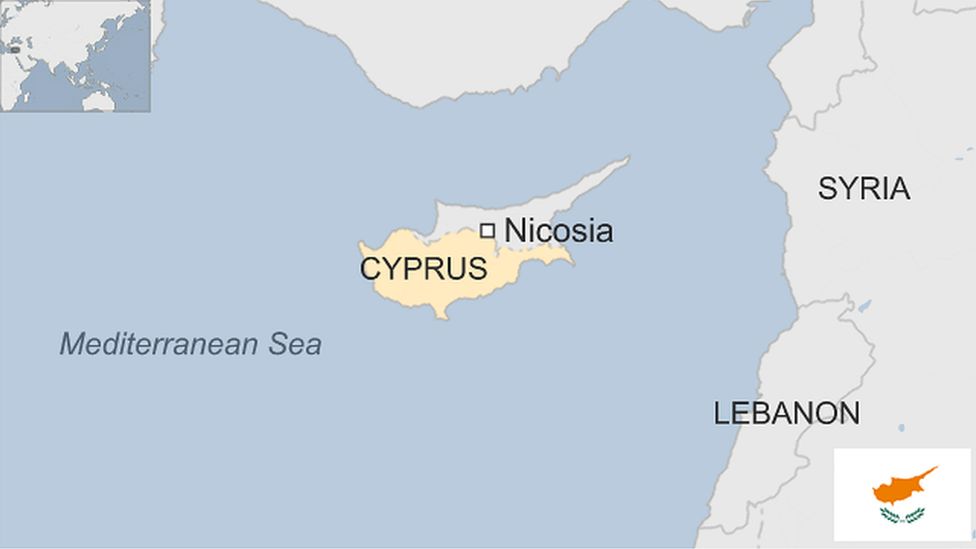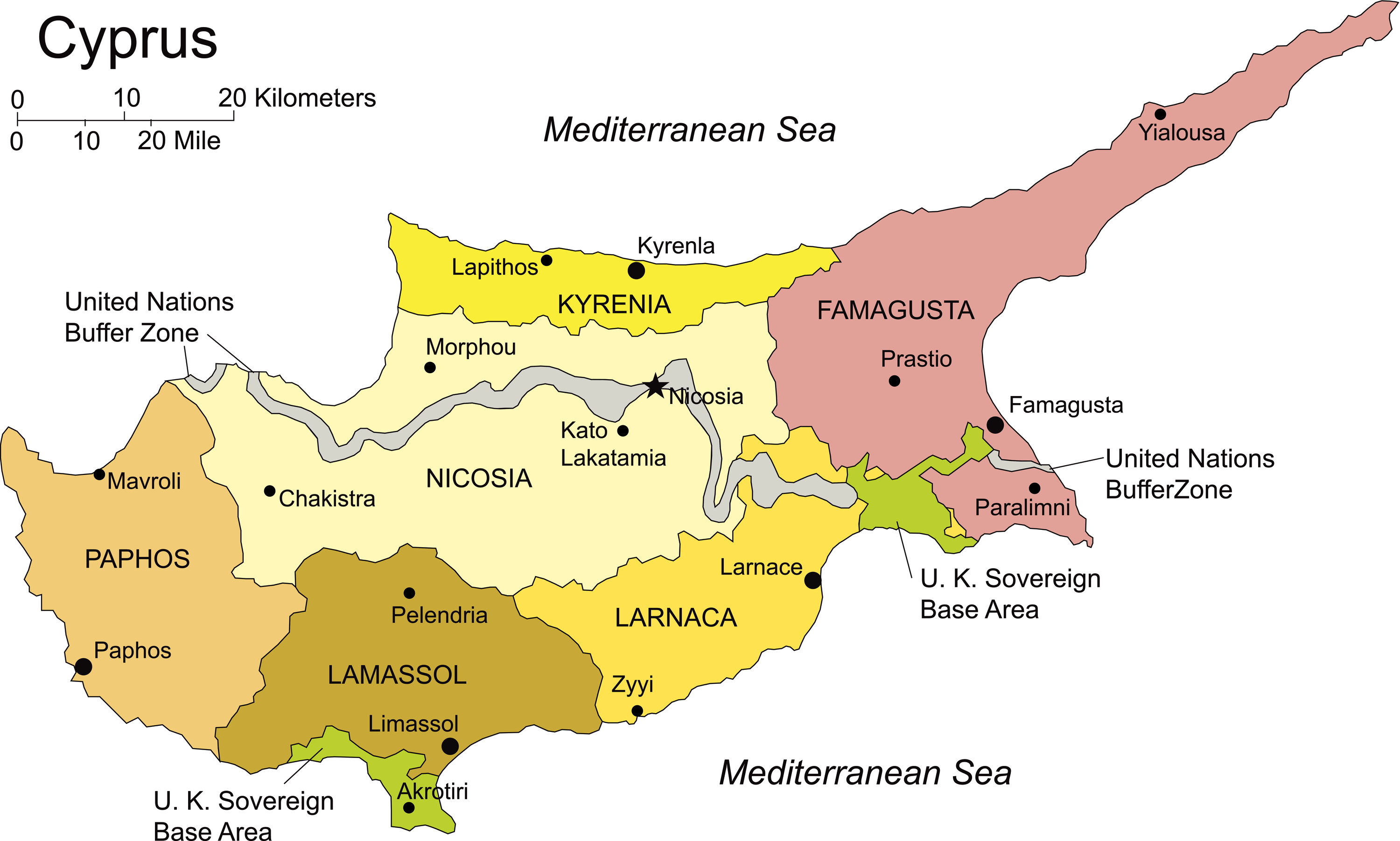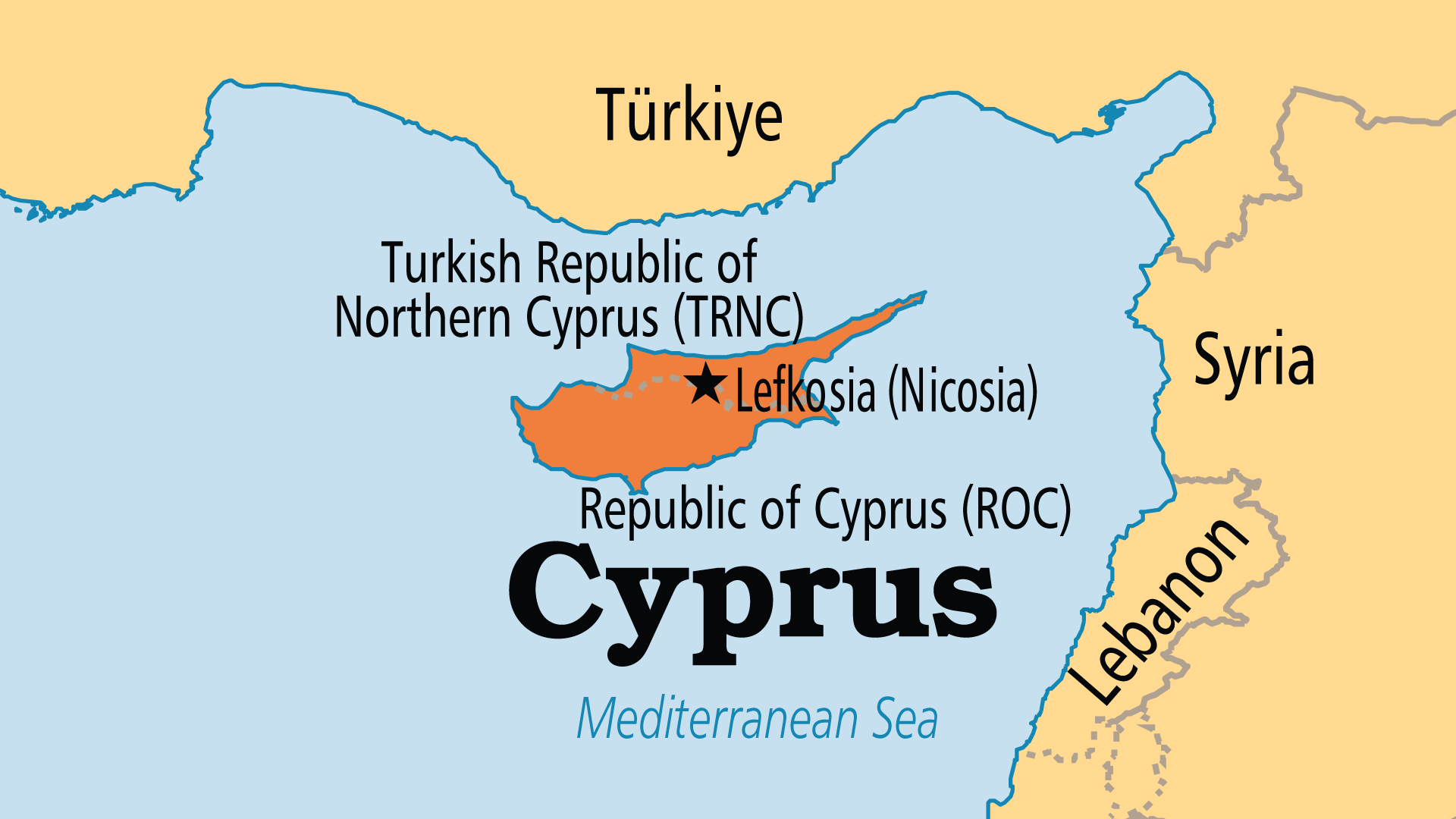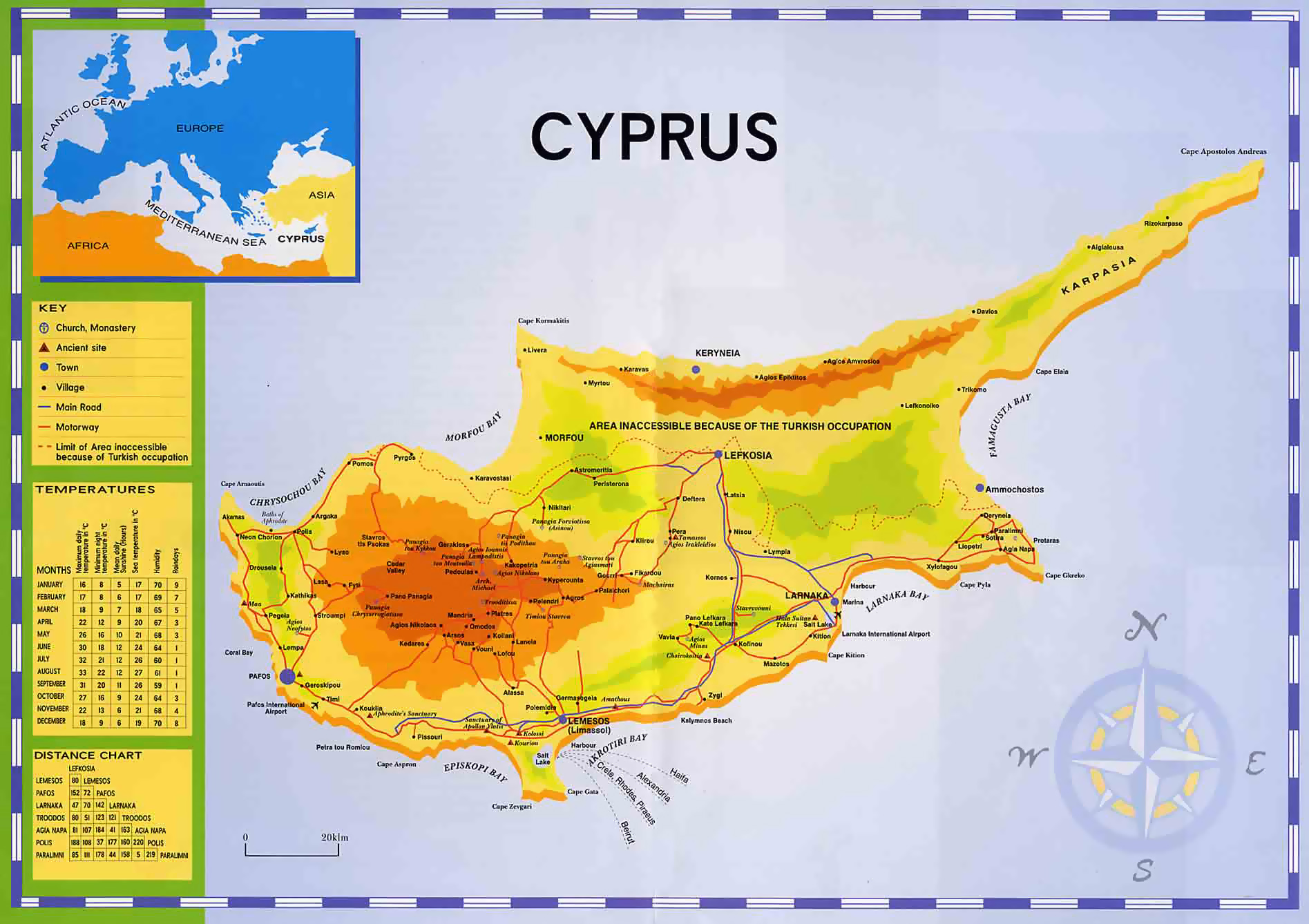Cyprus: A Crossroads On The Map Of The World
Cyprus: A Crossroads on the Map of the World
Associated Articles: Cyprus: A Crossroads on the Map of the World
Introduction
With nice pleasure, we are going to discover the intriguing matter associated to Cyprus: A Crossroads on the Map of the World. Let’s weave fascinating info and provide recent views to the readers.
Desk of Content material
Cyprus: A Crossroads on the Map of the World

Cyprus, the third-largest island within the Mediterranean Sea, holds a singular place on the world map, each geographically and traditionally. Its location on the crossroads of three continents – Europe, Asia, and Africa – has formed its tradition, politics, and economic system for millennia. Understanding Cyprus’s place on the world map requires analyzing its geographical context, its historic trajectory, and its present geopolitical significance.
Geographical Significance: A Mediterranean Hub
Cyprus sits roughly 70 kilometers (43 miles) south of Turkey, 108 kilometers (67 miles) west of Syria, and 380 kilometers (240 miles) north of Egypt. This strategic location has made it a coveted territory all through historical past, an important hyperlink between East and West, and a vital maritime node. Its proximity to main delivery lanes has fostered its improvement as a buying and selling heart, whereas its fertile land and considerable sunshine have supported agriculture.
The island itself is geographically numerous. The Troodos Mountains, rising to over 1,950 meters (6,400 toes), dominate the southwest, providing beautiful landscapes and a cooler local weather than the coastal plains. These mountains are wealthy in copper ore, a useful resource that performed a big position in Cyprus’s historic historical past and gave the island its title (from the Greek phrase "kypros," which means copper). The Mesaoria Plain, a fertile central valley, is the island’s agricultural heartland, producing grapes, olives, citrus fruits, and potatoes. The shoreline is various, that includes sandy seashores, rocky coves, and dramatic cliffs, attracting tourism from throughout the globe.
This geographical range contributes to Cyprus’s distinctive ecological character. The island boasts a wealthy biodiversity, with quite a few endemic plant and animal species discovered nowhere else on Earth. The Troodos Mountains are residence to quite a lot of coniferous forests, whereas the coastal areas help a spread of Mediterranean vegetation. This ecological richness, mixed with its beautiful landscapes, makes Cyprus a preferred vacation spot for eco-tourism and nature fans.
Historic Context: A Tapestry of Civilizations
Cyprus’s strategic location has made it a magnet for civilizations all through historical past. Proof of human settlement dates again to the Neolithic interval, and the island has been occupied by successive waves of immigrants and conquerors, together with Mycenaeans, Phoenicians, Assyrians, Egyptians, Persians, Greeks, Romans, Byzantines, Arabs, Lusignans, Venetians, Ottomans, and at last, the British. Every civilization left its mark, contributing to the island’s wealthy cultural heritage.
The Greek affect is especially outstanding, evident within the island’s language, faith, and tradition. Greek Cypriots represent nearly all of the inhabitants, and Greek Orthodox Christianity is the dominant faith. Nonetheless, the lengthy intervals of Ottoman and British rule have additionally left their indelible imprints. The Ottoman interval noticed the introduction of Turkish tradition and language, whereas the British interval established English as a broadly spoken language and left its legacy within the island’s authorized and administrative techniques.
The island’s historical past can be marked by intervals of battle and division. Probably the most important of those is the continued Cyprus downside, a fancy political concern stemming from the division of the island right into a Greek Cypriot-administered Republic of Cyprus and a Turkish Cypriot-administered Northern Cyprus. This division, which started in 1974 after a Turkish navy intervention, stays a significant impediment to the island’s reunification and its full integration into the worldwide neighborhood. This unresolved battle considerably impacts Cyprus’s place on the world map, shaping its worldwide relations and influencing its financial improvement.
Geopolitical Significance: A Bridge Between Continents
Cyprus’s geopolitical significance stays appreciable within the twenty first century. Its location on the crossroads of Europe, Asia, and Africa makes it a vital participant in regional dynamics. The island performs an important position in maritime commerce, performing as a hub for delivery routes connecting Europe with the Center East and Africa. Its strategic location additionally makes it a big participant in power safety, with the invention of considerable pure fuel reserves in its unique financial zone. These reserves have the potential to remodel Cyprus’s economic system and improve its geopolitical standing.
Moreover, Cyprus’s membership within the European Union (EU) considerably impacts its place on the world map. As an EU member state, Cyprus advantages from the financial and political benefits of EU membership, together with entry to the one market and participation in EU decision-making processes. Nonetheless, the division of the island poses challenges to its full integration throughout the EU framework. The EU’s efforts to facilitate a decision to the Cyprus downside are a vital side of its broader geopolitical technique within the Japanese Mediterranean.
The island’s position in combating terrorism and arranged crime can be noteworthy. Its strategic location makes it weak to those threats, and Cyprus actively cooperates with worldwide companions to deal with these challenges. The island’s participation in numerous worldwide counter-terrorism initiatives displays its dedication to regional and world safety.
Financial Significance: Tourism, Finance, and Vitality
Cyprus’s economic system is numerous, with tourism, finance, and delivery being key sectors. Tourism is a significant contributor to the island’s GDP, attracting tens of millions of tourists yearly with its stunning seashores, historic websites, and vibrant tradition. The finance sector can be important, with Cyprus performing as a regional monetary hub, notably for companies working within the Japanese Mediterranean. The invention of offshore pure fuel reserves has the potential to considerably increase the island’s economic system, diversifying its income streams and enhancing its power safety.
Nonetheless, the division of the island has negatively impacted its financial improvement. The unresolved Cyprus downside has hindered overseas funding and restricted the island’s financial potential. The reunification of Cyprus would undoubtedly result in important financial advantages, unlocking new alternatives for progress and improvement.
Conclusion: A Complicated and Dynamic Island
Cyprus’s place on the world map is advanced and dynamic. Its strategic geographical location, its wealthy historic heritage, and its ongoing geopolitical challenges all contribute to its distinctive identification. The island’s future will depend on resolving the Cyprus downside and harnessing its financial potential. As a crossroads of civilizations and a bridge between continents, Cyprus’s position on the world stage is ready to proceed evolving, formed by its historical past, its geography, and the alternatives its individuals make. Understanding its previous and current is essential to appreciating its potential for a peaceable and affluent future, a future that can undoubtedly proceed to form its place on the world map for generations to return.








Closure
Thus, we hope this text has supplied priceless insights into Cyprus: A Crossroads on the Map of the World. We thanks for taking the time to learn this text. See you in our subsequent article!